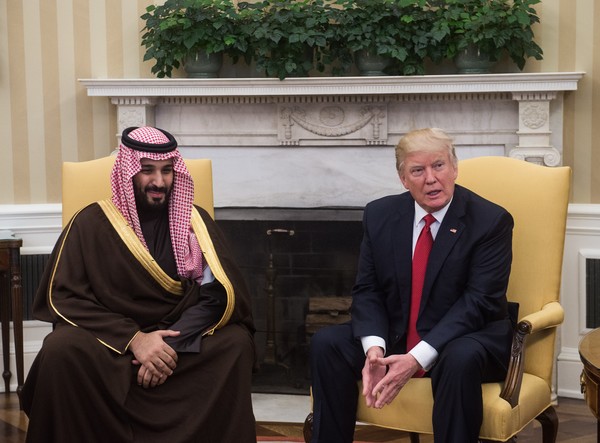In a 27 June 2017 article, Bloomberg described a worrying decrease in investors in Saudi Arabia’s industries. The article argues that falling oil prices coupled with ongoing and potential regional conflicts call for an updated economic model to offset the losses of the Gulf state members of the Organization of Petroleum Exporting Countries (OPEC), Saudi Arabia in particular. This updated model, coupled with societal reform and greater protection for worker and women’s rights, is much needed for the kingdom to be able to successfully follow through with its ambitious Vision 2030 project.
In 2016, oil served as a crucial source of Saudi Arabia’s revenue, comprising of a remarkable 62 percent of their revenue with an anticipated to increase to 69 percent in 2017. However, because oil prices have dropped to $40 – 50 (USD) per barrel and OPEC is planning production cuts, the Kingdom’s reduced revenue will not be the only aspect to suffer. Saudi Arabia’s petroleum industry cannot provide the number of jobs necessary to advance urgent Vision 2030 initiatives as planned, making this increase optimistic at best. As such, they will need to shift their efforts to a more fiscally sustainable income and wean the country off of oil profits.
Crown Prince Mohammed bin Salman’s Vision 2030 aims to do just that: transform the Saudi economy through diversifying industries – specifically within the private sector – while reducing the economy’s dependence on oil. In this way, Saudi Arabia seeks to increase non-oil revenue to 50 percent of its total income by 2020. This will only be possible by expanding their role in the global energy industry through transforming Saudi Aramco internationally and creating a sovereign wealth fund through an unprecedented initial public offering (IPO) of 5 percent in shares of the company. Saudi officials estimate Aramco is valued at $2 trillion, selling 5 percent of which would raise $100 billion for the Saudi economy.
Amidst plans to radically transform its economy due to broad concerns about revenue sustainability, Saudi Arabia purchases billions of dollars of weapons on the international market. According to the World Bank, Saudi Arabia spent 13.5 percent of their GDP, which equates to approximately $87 billion, on defense in 2015. Paradoxically, at the very moment the kingdom is concerned about its finances, it devotes over 10 percent of its revenue to financing weapons purchases to be used in the controversial war in Yemen, an initiative which is headed by the Crown Prince. Saudi Arabia has launched airstrikes which have hit numerous civilian targets, including noncombatants and hospitals, worsening the health and security of the country.
Despite humanitarian abuses in Yemen’s civil war, President Trump arranged a $100 billion arms deal to the Kingdom, under the blanket statement of increased ‘security.’ President Trump also chose to lift the suspension on selling precision-guided munitions – which the Obama Administration previously blocked – reinforcing the Saudi bombing campaign in Yemen and signaling to the Saudis that their actions are acceptable.
The paradox of spending one-tenth of GDP on arms in the midst of economic transformation notwithstanding, Saudi Arabia also faces the challenge of finding willing Saudis to engage with economic and labor force reforms. Officials from Lockheed Martin, a defense contractor involved in the deal, stated the deal “will directly contribute to Vision 2030 by opening the door for thousands of highly skilled jobs in new economic sectors.” However, since Saudis traditionally lack the skills and willingness to perform manual labor, the kingdom would have to rely on an increased dependence on foreign labor prior to industrial and infrastructural growth in the new sectors. Continuing to utilize foreign workers will consume most of the financial resources from proposed investments without guaranteeing increased revenue. In addition, this raises human rights concerns for foreign and domestic workers who have been subjected to physical or sexual abuse, withheld wages, and poor working conditions by their employers in the past.
Migrant workers have very few rights and protections within the Kingdom, which often fails to sufficiently investigate abuses against them. Many workers are illegally recruited to work in Saudi Arabia and forced into servitude. Female workers, due to their isolated position in private residences, are highly vulnerable to trafficking and sexual abuse at the hands of their employers. Further, Saudi Arabia has failed to ratify the International Labor Organization’s Domestic Labor Convention and therefore failed to protect not only their industries, but those who travel to the Kingdom hoping for a better life.
Politically, there is an intersection between security and economic policy. Researchers have claimed that in order for Vision 2030 to succeed, it must change Saudi society. Current positions in the private sector are unattractive to Saudis, and subsidy cuts and unemployment are constant reminders of grievances which fueled the Arab Spring revolts in 2011. The International Monetary Fund (IMF) is concerned about the effectiveness of Vision 2030, given its far-reaching goals for economic growth with little emphasis on the evolution of Saudi society and politics. However, necessary revisions within the private sector are increasingly more difficult as low oil prices starve a country of capital for reconstruction.
Growth is negated when the necessary resources to achieve it are depleting at a fast rate. Saudi Arabia has a brief 13 years to radically overhaul its economy – which will surely be met with opposition from entrenched interests. As such, the success of Vision 2030 appears to be bleak, given its lack of focus on political and social development, reliance on several years’ worth of essential non-oil revenue to foster the expansions within a time constraint, unwillingness to promote health and stability in the region, and fiscal irresponsibility.
Sydney Scribner is an Advocacy Intern at ADHRB.
[Featured Image by Nicholas Kamm / AFP]





